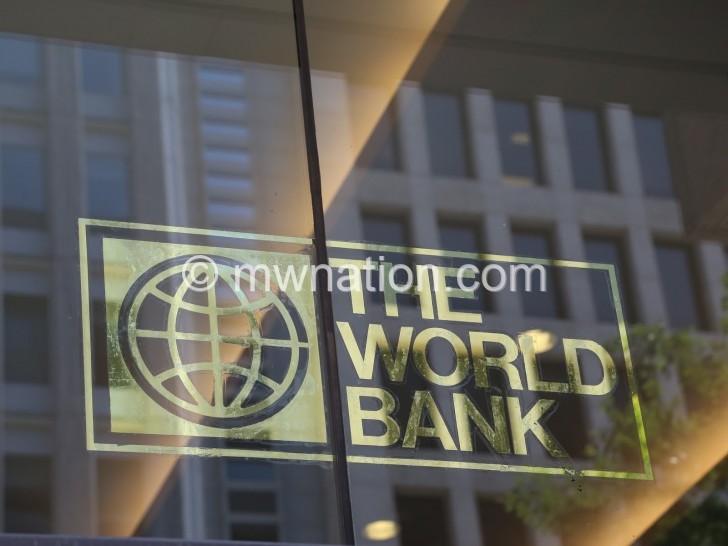The World Bank says government domestic debt uptake by the banking sector remains high at 66.3 percent year-on-year as at September 2022, crowding out private sector investment.
On the other hand, the Bretton Woods institution said net credit from the banking sector to the private sector increased by 22.4 percent year-on-year.
In its December 2022 Malawi Economic Monitor released yesterday, the World Bank warns that with the government still recording high fiscal deficits, uptake of domestic debt to finance the gap is still rising.
Reads the report in part: “Domestic debt has increased by 11 percent in 2022/23 financial year to K4.3 trillion or equivalent to 37.4 percent of the gross domestic product, as of August 2022, 67 percent of which is held by the banking sector.
“Broad money supply is increasing by 36.3 percent year-on-year as of September 2022, in turn exerting additional inflationary pressures.”
Meanwhile, the pattern of lending to the private sector has not changed much in the year with most lending going to the community, social and personal services, wholesale and retail trade and agriculture, forestry, fishing and hunting sectors.
According to the Reserve Bank of Malawi data, collectively, these accounted for 71.9 percent of the total loan portfolio in September 2022, an increase from 67.7 percent in September 2021, with lending to the manufacturing sector remaining low at 9.3 percent down from 13.2 percent in 2021.
Meanwhile, the World Bank Business Pulse Survey interviewed 1 200 small enterprises in October 2022 and found that many enterprises are on the brink of financial unviability, with one-quarter reporting existing or imminent arrears and 14 percent insolvent or on the brink of insolvency.
The survey also found that three-quarters of the enterprises reported difficulties in accessing finance, which could be used to overcome such impasses.
In an interview yesterday, Chamber for Small and Medium Business Association executive secretary James Chiutsi said access to finance coupled with hiked interest rates and tax and uncontrolled inflation, monetary and fiscal policies are all impinging on small and medium enterprises’ performance, thereby affecting capital retention.
“SMEs in Malawi are undergoing economic constraints, resulting in economic slowdown and death of most businesses,” he said.
Speaking separately, Malawi Confederation of Chambers of Commerce and Industry president Lekani Katandula observed that the continuation of current trends could stifle private sector growth through high interest rates. He said: “Current trends show massive opportunity for government to positively impact cost of finance and growth for the private sector.”
The post Domestic debt rise stifles businesses—World Bank appeared first on The Nation Online.
 Moni Malawi
Moni Malawi 

